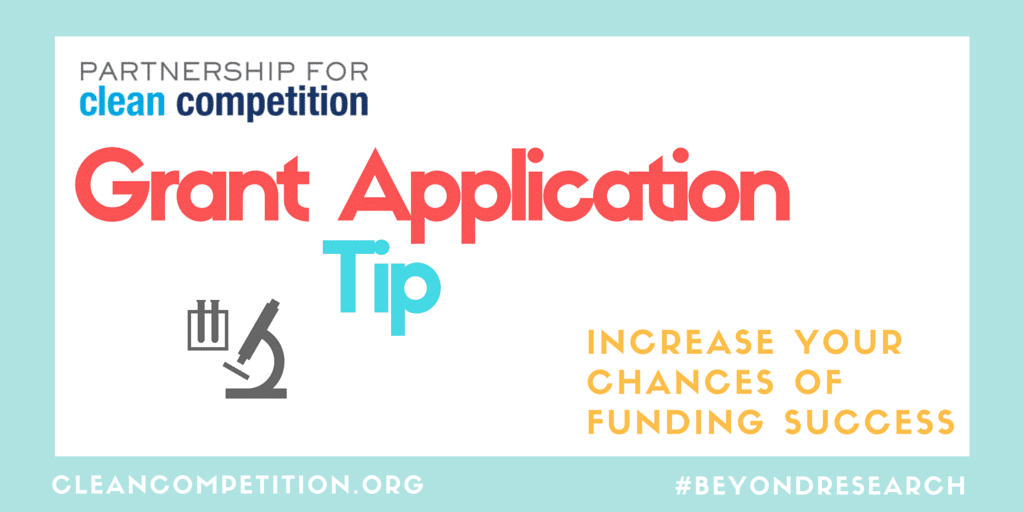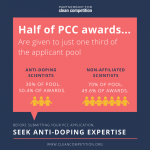Recently, we discussed that 70% of PCC funded primary investigators are NOT affiliated with an anti-doping laboratory at the time of their award. Rather, these researchers represent various fields of science and conduct their projects within academic institutions or industry labs.
The importance of this ‘non-affiliated’ demographic cannot be overstated: supporting researchers from diverse backgrounds and areas of expertise expands the pool of talent contributing to advance anti-doping science. This not only speeds the pace of discovery in priority areas, but increases the potential for novel scientific approaches to solve pervasive challenges that career anti-doping scientists may not have considered, or lack the appropriate resources to carry out.
Despite the critical importance of ‘non-affiliated’ researchers, however, over half of the PCC’s affirmative funding decisions (50.4%) are awarded to the 30% of researchers who are affiliated with an anti-doping laboratory.
In other words, career anti-doping scientists submit successful applications with more than twice the frequency of investigators representing outside fields.
This is because scientists working daily within the anti-doping universe possess critical context for how their research may be applied in a real-world setting, and clearly articulate in their application:
a) what existing anti-doping challenge their research will attempt to solve and,
b) how the research may be applied in a laboratory
These are two areas where non-affiliated scientists often fall short during the application process.
How can non-affiliated researchers submit more successful applications?
The PCC encourages new researchers to apply for our grants and contribute to the anti-doping movement – even if they have never applied their knowledge to anti-doping problems. However, it is difficult to solve a problem if you can’t fully understand that problem, including any intricacies and ramifications.
That’s why we recommend that applicants with no prior anti-doping experience consult with an anti-doping expert when constructing the PCC application. Individuals with anti-doping knowledge (including how new technology might be implemented, where advances are critically needed, and any industry specific regulations that might mitigate research progress) can help applicants produce a thoughtful study which solves a contemporary problem or efficiently updates a widely used technique.
From the design of a project’s purpose, to the creation of a strategic experimental methodology, an anti-doping expert can provide critical knowledge to help mitigate pitfalls and plan for adoption into an anti-doping setting – necessary components of a PCC application.
What can this collaboration look like?
Applicants may choose to reach out to individuals with experience working within a WADA-accredited lab and/or working with the given research topic. Such individuals are often found through their body of previous work and research outputs (i.e. publications). In order to showcase a formal agreement, many applicants supplement their application with a letter from the anti-doping institution stating they support the aims and methodology of the project, and are available for consultation (and/or have a specific project role).
Anti-doping scientists (or other relevant experts) may also be solicited as part of the research team with a clearly defined project role (for example, mass spec operation, human trial design, or endocrinology expertise). In specific cases, the PCC may be able to help with this process.
In cases where it is not possible to consult an expert, applicants should, at a minimum, review the current body of literature related to their project, including current challenges facing anti-doping technology, and current solutions being sought. Seeking relevant and compelling preliminary information is critical to a successful PCC application, as is the ability to showcase an understanding of the specific anti-doping challenge the project will be funded to solve. A good place to start may be the PCC Funded Projects page, where all funded projects and associated publications are listed.
While the PCC cannot guarantee funding success for any application (all submissions are subject to a rigorous and purposeful grant-making process), taking the above steps will better position an applicant for a PCC award.





